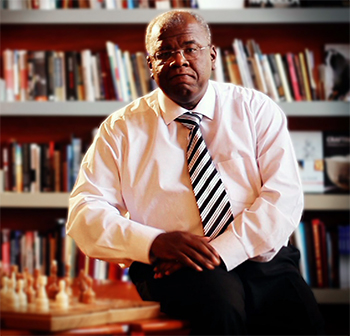Latest News Archive
Please select Category, Year, and then Month to display items
10 March 2022
|
Story Anthony Mthembu
|
Photo Unsplash
 The No Student Hungry team gearing up to start distributing food parcels to the selected students.
The No Student Hungry team gearing up to start distributing food parcels to the selected students.
The UFS is one of the many institutions of higher learning where food insecurity is an active issue. However, the
No Student Hungry Programme is one of the initiatives launched at the university to assist in fighting food insecurity at the institution.
The purpose of the programme
Since its inception in 2011, the initiative has assisted many students in acquiring a healthy meal. Additionally, the Food Environment Office also hands out food packages, so that students can continue to achieve academically. “We are trying to develop a healthy environment for students and make it easier for them to have a nice and healthy meal,” stated Annelize Visagie, who heads the Food Environment Office at the UFS. The Food Environment programme is spread out on all three campuses, each with its own facilitators. Furthermore, the programme mainly caters for students who are not funded by the National Student Financial Aid Scheme (NSFAS) but who are excelling academically. The abovementioned students apply for assistance online, and a list is then drawn up of students who receive assistance for the year.
Alternative solutions to keep the initiative running
On the Bloemfontein Campus, the No Student Hungry Programme will be catering for 200 students in the 2022 academic year, assisting them with a daily nutritious meal. Additional food parcels are also handed out to provide further assistance. “We give food parcels to the students on the list every Tuesday and Thursday at the Thakaneng Bridge,” Visagie highlighted. However, she argues that catering for the student population through this programme can be a challenge, as the demand for assistance is growing rapidly and the ability to assist is limited. The programme relies on partnerships and sponsors to assist the student body. In fact, the coordinators of the programme currently have a memorandum of understanding with Tiger Brands according to which they deliver around 100 food parcels for distribution.
In addition, the coordinators have put in place alternative measures to ensure that they can provide more food to students. “The
Kovsie Act Office, in partnership with the
Department of Sustainable Food Systems and Development, has started a food garden where healthy and nutritious produce are grown, in order to add value to the distribution,” she indicated. Although the programme can only assist to a point, students who are in desperate need of assistance are never turned away. In fact, the
Social Support Unit at Thakaneng Bridge usually assists students with food vouchers for a maximum of four days.
A commitment to teaching healthy eating habits
The programme is not only committed to curbing food insecurity, but also to ensuring that students have a healthy and balanced diet. As such, a booklet is being issued by the
Department of Nutrition and Dietetics in collaboration with the Department of Sustainable Food Systems and Development, which contains ways in which students can make a healthy meal using some of the ingredients offered in the food parcels.
“We want to teach students how to eat healthy in the cheapest way, because they don’t have a lot of money to buy expensive food products,” Visagie argued.
Prof Jonathan Jansen elected as new ASSAf President
2016-10-28

Prof Jonathan Jansen, former Vice-Chancellor
and Rector of the UFS, has been appointed
President of the ASSAf.
Photo: Supplied
The Academy of Science of South Africa (ASSAf) has elected former Vice-Chancellor and Rector of the University of the Free State (UFS), Prof Jonathan Jansen, as its new President for the next four years. He succeeds Prof Daya Reddy. Distinguished Professors Brenda Wingfield and Barney Pityana were elected ASSAf’s new Vice-Presidents.
The minds that shape tomorrow
The academy’s directive is to advise and provide the government with evidence-based solutions to national problems; inspiration, and examples of how science and technology can be applied for the benefit of society. ASSAf represents scientists in South Africa but also represents the country in the international community of science academies.
Prof Jansen, who is currently a Senior Research Professor at the UFS and a Fellow at the Center for Advanced Studies in the Behavioral Sciences at Stanford University, is also a Fellow of the American Educational Research Association, a Fellow of The World Academy of Sciences, and President of the South African Institute of Race Relations.
The great achieve greatly
Prof Jansen’s book, Knowledge in the Blood: Confronting Race and the Apartheid Past won the Nayef Al-Rodhan Prize, the largest award from the British Academy for Social Sciences and Humanities, for its contribution to scholarly excellence and transcultural understanding.
In 2013, he was awarded the Education Africa Lifetime Achiever Award in New York and the Spendlove Award from the University of California for his contributions to tolerance, democracy and human rights. He holds honorary degrees from the University of Edinburgh, the University of Vermont and Cleveland State University.
Plans for the future
His recent books include Leading for Change, which was published this year. He is completing a new book explaining the current crisis in, and future prospects of, South African universities, due for release in mid-2017.